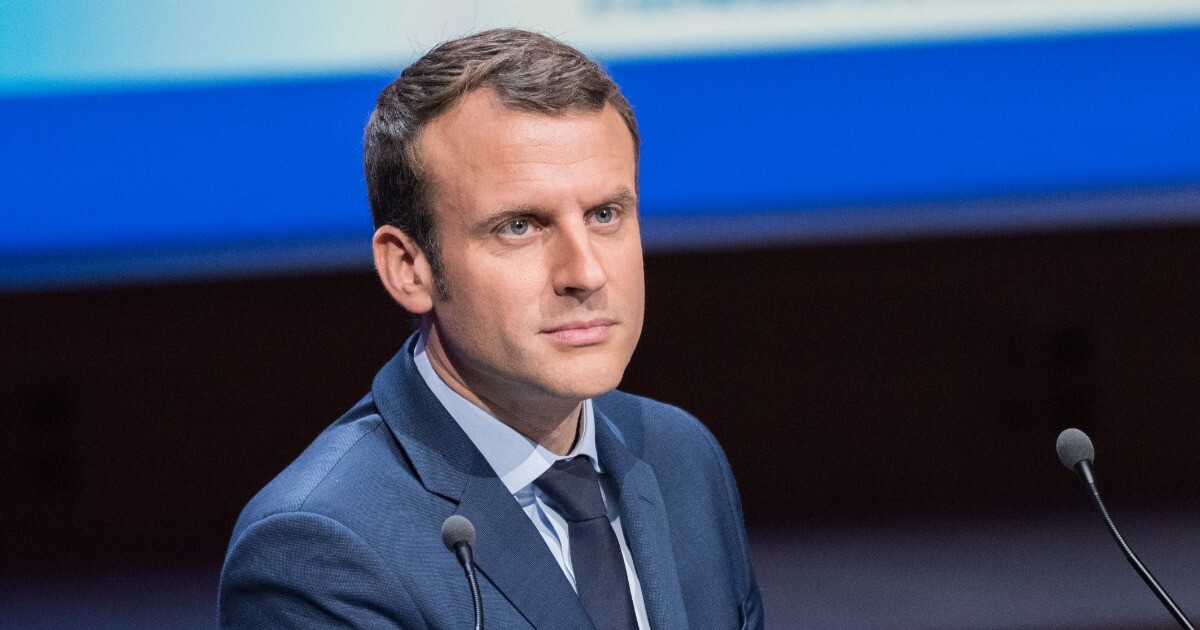Can Macron Save Lebanon From Its Political Class?
Lebanon needs a new state, not new visits from the President of France.
September 5, 2020

Whenever a major international disaster happens, political leaders from around the world are quick to express solidarity and support for the victims, if they don’t also rush to be photographed at the scene and promising help. Then they go home, and the news cycle rolls on.
France’s President Macron is trying to break this rule with a second-high profile visit to Lebanon earlier this week.
It followed his August 6th visit two days after a major explosion left a crater 45 meters deep and destroyed all the homes in Beirut’s bustling port neighborhood.
A welcome visit
The images of Macron being mobbed by Lebanese supporters were a change for Macron.
In his own country, the French President had first seen a long wave of gilets jaunes protests and then, this year, he had to contend with rises in COVID 19 infections.
The key question
But is Macron’s engagement really a catalyst for change that corresponds to the demands of the anti-government protests in Lebanon in 2019.
Or does it just signal the return of a France eager to guard its colonial heritage via maintaining a French presence in the Middle East?
Earnest in intent, colonial in context
The probable answer is both of the above. Macron’s galvanizing speech calling for a government of true national unity rang reassuringly in the ears of Lebanon’s elites.
Everyone in Lebanon knows that any government mandated on the same hyper-complex ethno-religious and political settlement that is currently in place only cements the utter disfunction that handicaps Lebanon today. It would be completely unable to reform the country in the way it desperately needs.
It does not augur well that Mustapha Adib, Lebanon’s former ambassador to Germany, is the newly named prime minister. He is the type of technocratic non-entity plucked from the political hinterland that has been tried before, to no avail.
Macron: A man of geopolitical action?
In this week’s visit to Lebanon Macron again tried to cast himself as a man of geopolitical action. Yet, while Macron was busy with a tour heavy on the symbolism, downtown Beirut was filled with protesters angry with Adib’s appointment.
For all Macron’s sincerity in pushing Lebanon to reform, the reality is that, as a former colonial power, France is not able to wield the same coercive powers of “persuasion” it used to.
Stuck in the mud of Lebanese politics?
The sad reality is that the initial wave of unanimity, across the streets and on social media, to support Macron’s call for an independent international investigation into the explosion has been met with the usual blockages and excuses.
It was ultimately rejected by President Aoun. Instead, an investigation will be now led by the ineffective Lebanese judiciary.
Its efforts are likely to arrive at the same biased, incompetent and unsatisfactory result that was the outcome of the investigation into Rafik Hariri’s assassination.
While his assassination had taken place in 2005, the result of the trial that concluded in August 2020 was to find one person guilty, while acquitting three others. That meager and highly unsatisfactory outcome took fifteen years.
Looking ahead to Macron’s third visit
By Macron’s third visit to Beirut, due in December, it will be hard to avoid the imagery of a stern headmaster rebuking naughty school children for not doing their homework.
Lebanon’s constitution is structured almost exclusively in such a manner that it serves the political and economic interests of the elite cabal.
That basically makes it impossible to pass the transformational reform that is the lowest bar demanded by the protesters in Lebanon, especially the voices from the younger generation.
Achieving that would necessitate the wholesale replacement of the political order of the last 30 years. Lebanon needs a new state, not so much new visits from the President of France.
Carrot and stick politics
In trying to cajole the Lebanese to reform and action, Macron has suggested a carrot and stick approach — meaning that the prospect of unlocking an internationally sponsored fund will be contingent on substantial reform.
The problem with this approach is that it has been tried before. It is near identical to the run-up to the CEDRE (Conférence économique pour le développement, par les réformes et avec les entreprises) conference of 2018 when the international community agreed to a significant loan again dependent on political reforms. However, the reforms never took shape — and the CEDRE funds stayed locked away.
Geopolitical grandstanding?
To get a different outcome this time, Macron has hinted at possible sanctions at Lebanon’s ruling class. How exactly this could play out, or whether it would motivate reform, is unclear.
In the midst of what some will see as geopolitical grandstanding, it is the Lebanese people who suffer daily from the continued decline of the economy and the rise in inflation.
Despite limitations on international migration during the pandemic, one can expect to see a brain drain of Lebanon’s best and brightest who have little stake in fighting at home for a better future.
Conclusions
Macron’s intentions may well be sincere. Yet, for all his commitment and sense of action, his initiative does not mark a particularly novel or radical approach.
Indeed, it appears as though past mistakes are being repeated. Asking the unreformable to reform, even by sanctions, will yield few results in the morass to which the once thriving Lebanon has devolved.
Takeaways
Is Macron’s engagement in Lebanon more than a signal that France wants to guard its colonial heritage – and maintain a presence in the Middle East?
Lebanon needs a new state -- not so much new visits from the President of France.
By Macron’s third visit to Beirut in December 2020, it will be hard to avoid the imagery of a stern headmaster rebuking naughty school children.
Lebanon’s constitution is structured almost exclusively to serve the political and economic interests of the elite.
Asking the unreformable to reform, even by sanctions, will yield few results in the morass to which the once thriving Lebanon has devolved.

